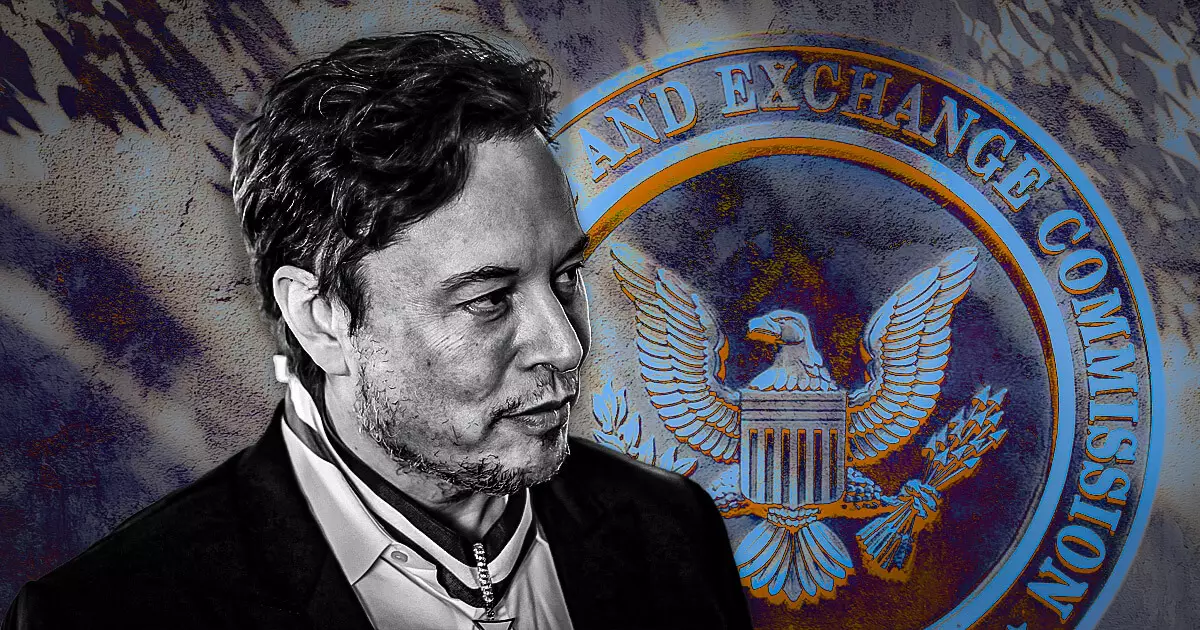In a surprising turn of events, the Department of Government Efficiency (DOGE), under the leadership of Elon Musk, has initiated a bold campaign aimed at the US Securities and Exchange Commission (SEC). With the objective of enhancing transparency and curtailing waste within government spending, DOGE has taken an unconventional route by appealing directly to the public. This initiative invites individuals with insights into inefficiencies or unethical practices within the SEC to share their knowledge, suggesting a proactive approach to government oversight that seeks input from citizens. By encouraging direct messages from the public, DOGE emphasizes its openness to receiving and addressing grievances concerning SEC operations.
The DOGE’s outreach to the public represents a significant shift in how government entities may choose to confront internal issues. By democratizing the process of oversight, DOGE signals that engaging with the public could yield critical information that traditional methods may overlook. This strategy aligns with Musk’s well-known advocacy for transparency and accountability, positioning DOGE not merely as another bureaucratic body but as a catalyst for meaningful change. The response from various segments, particularly within the cryptocurrency community, underscores the importance of this initiative. As discussions proliferate, stakeholders recognize an opportunity to reshape how regulatory bodies operate, particularly in an era marked by rapid technological advancement.
Significant pushback against the SEC’s current practices has emerged, revealing deeper dissatisfaction with its handling of regulatory actions. Critics, including legal figures like Paul Grewal, have pointed to the SEC’s shortcomings, especially under the leadership of former Chair Gary Gensler. Multiple legal setbacks faced by the SEC have raised questions regarding the agency’s credibility and appropriateness in imposing regulations on cryptocurrencies. The suggestion of a policy requiring the SEC to reimburse legal costs for companies winning against its enforcement actions is a pivotal call for reform, indicating broader discontent with the agency’s tactics.
For advocates in the cryptocurrency space, DOGE’s investigation holds the promise of reconsidering and possibly recalibrating the SEC’s stance on digital assets. Since Gensler labeled various cryptocurrencies as securities, a climate of uncertainty has affected market participants, particularly retail investors. This categorization has already resulted in extensive legal challenges and significant financial repercussions. Advocates like Dan Gambardello argue that it is critical to dissect these decisions and understand the rationale behind them, which may restore some level of confidence to stakeholders in the crypto economy.
The DOGE initiative reflects a changing landscape in regulatory oversight, where public engagement and scrutiny take precedence in ensuring accountability. By investigating the SEC’s practices, DOGE has the potential to identify discrepancies that could lead to significant reform in the regulatory framework governing the cryptocurrency space. As discussions continue and more stakeholders become involved, the hope is that this wave of scrutiny can not only improve government efficiency but also secure a fairer and more transparent regulatory environment for all market participants. The spotlight is now on the SEC, and whether it can adapt to this growing demand for change will determine its future credibility and effectiveness.

